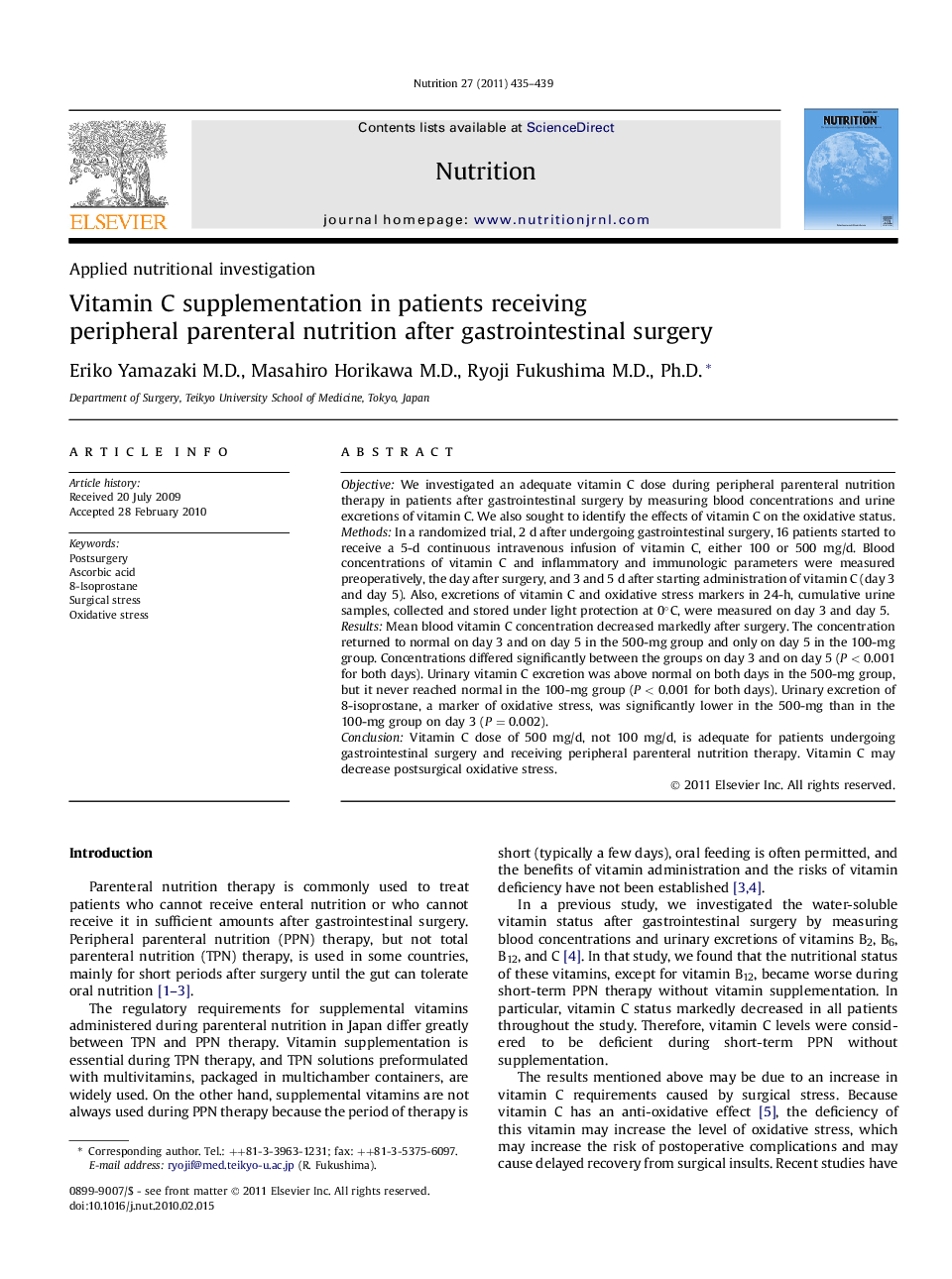| Article ID | Journal | Published Year | Pages | File Type |
|---|---|---|---|---|
| 3276569 | Nutrition | 2011 | 5 Pages |
ObjectiveWe investigated an adequate vitamin C dose during peripheral parenteral nutrition therapy in patients after gastrointestinal surgery by measuring blood concentrations and urine excretions of vitamin C. We also sought to identify the effects of vitamin C on the oxidative status.MethodsIn a randomized trial, 2 d after undergoing gastrointestinal surgery, 16 patients started to receive a 5-d continuous intravenous infusion of vitamin C, either 100 or 500 mg/d. Blood concentrations of vitamin C and inflammatory and immunologic parameters were measured preoperatively, the day after surgery, and 3 and 5 d after starting administration of vitamin C (day 3 and day 5). Also, excretions of vitamin C and oxidative stress markers in 24-h, cumulative urine samples, collected and stored under light protection at 0°C, were measured on day 3 and day 5.ResultsMean blood vitamin C concentration decreased markedly after surgery. The concentration returned to normal on day 3 and on day 5 in the 500-mg group and only on day 5 in the 100-mg group. Concentrations differed significantly between the groups on day 3 and on day 5 (P < 0.001 for both days). Urinary vitamin C excretion was above normal on both days in the 500-mg group, but it never reached normal in the 100-mg group (P < 0.001 for both days). Urinary excretion of 8-isoprostane, a marker of oxidative stress, was significantly lower in the 500-mg than in the 100-mg group on day 3 (P = 0.002).ConclusionVitamin C dose of 500 mg/d, not 100 mg/d, is adequate for patients undergoing gastrointestinal surgery and receiving peripheral parenteral nutrition therapy. Vitamin C may decrease postsurgical oxidative stress.
